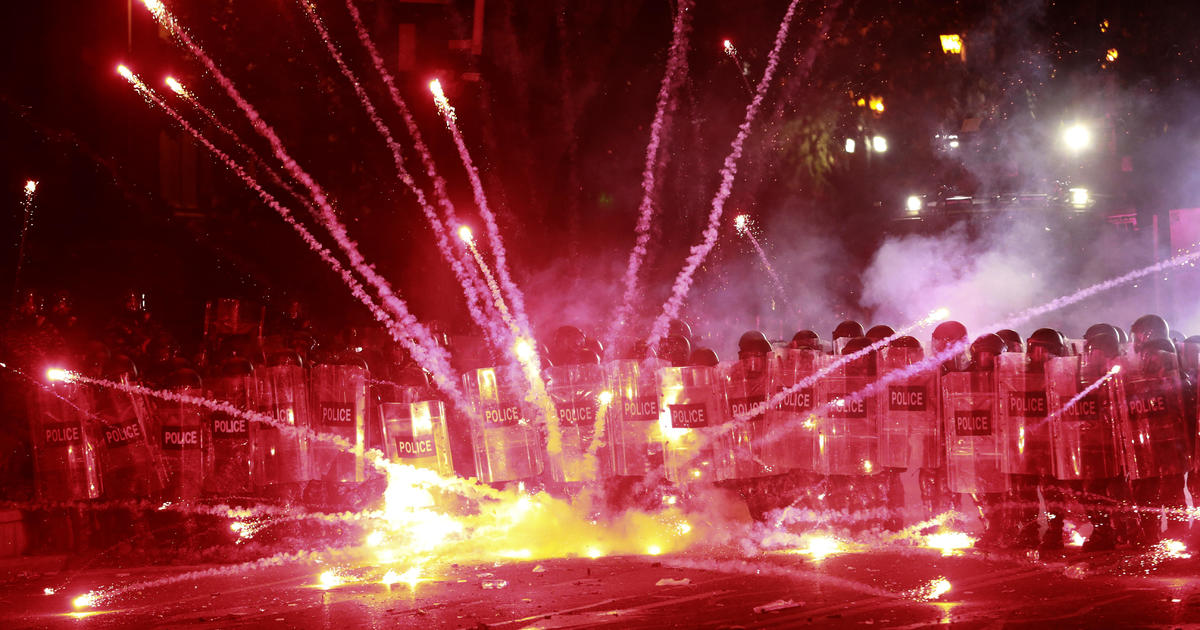Introduction
The nation of Georgia is currently experiencing a significant wave of unrest, characterized by widespread protests that have led to more than 40 individuals being hospitalized. The demonstrations, which have escalated in intensity and scale, have prompted the suspension of crucial negotiations with the European Union, thereby raising serious concerns about the political stability and future trajectory of the country. This article delves into the causes of the protests, the implications for Georgia’s political landscape, and the broader context of its relationship with the EU and regional dynamics.
The Roots of Unrest
Understanding the root causes of the current protests in Georgia requires an examination of several intertwined factors:
- Political Discontent: Many protesters express dissatisfaction with the current government, accusing it of corruption and failing to address economic challenges.
- Russian Influence: The geopolitical tension between the West and Russia plays a pivotal role in Georgian politics. Many citizens fear that the current administration is veering towards Moscow, undermining Georgia’s aspirations for closer ties with the EU and NATO.
- Social Issues: Economic hardship, high unemployment rates, and rising living costs have fueled public frustration, leading to demands for systemic change.
Impact on EU Negotiations
The protests have significantly impacted Georgia’s ongoing negotiations with the European Union, which were aimed at strengthening political ties and economic cooperation. The suspension of these talks raises critical questions about the future of Georgia’s Euro-Atlantic integration efforts. The EU has been a significant supporter of Georgia’s aspirations, providing financial aid and political backing in its quest for closer ties with Europe.
The halt in negotiations not only jeopardizes potential economic benefits but also sends a worrying signal to other Eastern Partnership countries, which look to Georgia as a leader in the region’s pro-European movement.
Broader Regional Context
This unrest in Georgia occurs within a broader regional context of rising tensions in Eastern Europe. Several factors contribute to this situation:
- Increased Authoritarianism: Many neighboring countries are witnessing a trend towards authoritarian rule, prompting citizens to push back against perceived government overreach.
- Russian Aggression: Russia’s continued military presence and influence in the region, particularly in Ukraine and Moldova, has heightened fears among Georgian citizens about their own sovereignty and territorial integrity.
- European Security Concerns: The EU has been increasingly focused on security in Eastern Europe, seeking to stabilize the region and prevent Russian expansionism.
Public Reactions and Political Responses
The public response to the protests has been varied. Supporters of the demonstrations argue that they are a necessary expression of democratic rights and a push for accountability from the government. Conversely, some citizens, particularly those with pro-government views, argue that the protests disrupt public order and threaten national stability.
Political leaders have responded in different ways:
- Government’s Stance: The government has condemned the protests, labeling them as attempts to destabilize the nation. Officials have called for dialogue but have also taken measures to curb unrest.
- Opposition’s Position: Opposition parties have seized the moment to rally support, calling for reforms and greater transparency in governance.
The Role of Civil Society
Civil society organizations in Georgia have played a crucial role in mobilizing public support for the protests. Many NGOs have advocated for democratic reforms, human rights, and anti-corruption measures. Their involvement has helped to amplify the voices of citizens and has brought international attention to the situation.
Moreover, media coverage of the protests has been significant. Social media platforms have allowed demonstrators to share their experiences, garnering support both locally and internationally. The role of citizen journalism cannot be overstated, as it provides an alternative narrative to state-controlled media.
International Reactions
The international community has closely monitored the situation in Georgia. The EU and NATO have expressed concern over the unrest, calling for restraint and dialogue among all parties involved. The U.S. State Department has also issued statements urging the Georgian government to respect the rights of protesters and to engage in meaningful dialogue.
As the situation unfolds, the potential for international intervention or mediation may arise, especially if the unrest escalates further. The implications for Georgia’s international relationships, particularly with the EU and the U.S., will be significant.
Conclusion
The protests in Georgia represent a critical juncture in the nation’s political history. As tensions escalate and negotiations with the EU remain suspended, the path forward remains uncertain. The government’s response, the role of civil society, and international reactions will all play pivotal roles in shaping Georgia’s future. For many Georgians, the current unrest is not just about immediate grievances; it is about the very identity of their nation and its place in the world.
As the situation continues to develop, it will be essential for all stakeholders—government, opposition, civil society, and the international community—to engage in constructive dialogue to address the underlying issues and work towards a peaceful resolution. The stakes are high, not just for Georgia, but for the stability and security of the entire Eastern European region.
For more information on the ongoing situation in Georgia, visit the BBC News.
See more CNET 247



